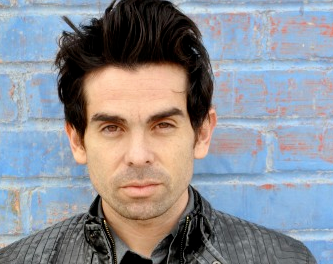Because God doesn't do what we want him to, we so often conclude that He simply doesn't care enough to, and therefore that He simply is not a loving God. We assume when God allows any adversity, or pain, or suffering in our lives it is because he just doesn't have our good in mind, and certainly not our best. For if He did, He wouldn't allow such things. We therefore think of God as still being good and loving, yet because we see our circumstances as those that we assume a good God wouldn't allow, we conclude that he must not be able to sovereignty control them. In other words, because God doesn't do what we think a good God should, we conclude He is not powerful enough to do what a good God would. Beneath it all, it is not so much a question of God's omnipotency that bothers us, but rather a doubt of His goodness. Why trust an all-powerful God if He doesn't want what's best for us? If He doesn't even use his power for our good? Why even believe in such a God? Surely the idea of a God who is by nature good yet not all-powerful is lacking enough, but the idea of a holy and righteous God, unlimited in power and strength and energy, yet not inclined towards our good? This is terrifying! Give me a God that is for my good and lacking in power, but never a God that would seek my harm! Anything but that! We seem quite okay with worshiping a good God that simply may not be able to stop my pain, but to worship a God who could but doesn't? This seems downright outrageous! Certainly such a God doesn't deserve our praise. Therefore, it seems the nagging question among the church today isn't as much "Is God powerful enough to stop this?", but "Is God even good in allowing this?". If He's not, then heck, throw the baby out with the bathwater and live with a slightly less than sovereign God- as long as we still have a good and loving God. However, I believe this is a direct assault on God's very being, and just as outrageous as claiming God is all-powerful but not good. It constitutes both the height of arrogance as well as the shallowness of human reason, and is nothing but the result of a constant preoccupation with that most terrible of oppressors: ourselves.
We say, "Well, everyone wants what's best for them." And I'd agree. However, we are so quick to think we know what's best for us better than anyone. We forget that surely an omniscient God must know us better than ourselves, he would not be omniscient otherwise. And for Him to know us better than ourselves, he must know what's best for us better than ourselves, if indeed He is to be good and all-wise as well as omniscient. Therefore, even by pure reason we can be sure that God does indeed know us better than ourselves. Far better. In fact, God knows us and what is best for us to such an intimate extent that for us to question Him is but to claim our place as fools. Yet we constantly do this. We look at circumstances God has permitted in our lives and immediately jump to the conclusion that He couldn't possibly have wanted them to happen to us. Why? Well, because we wouldn't have allowed them to happen to us. We assume that what God thinks is best for us and what we think is best for us are equivalent. But couldn't the simple fact that what happens to us isn't always what we want to happen to us be an obvious indicator that they aren't the same? To think that for some reason God does allow things to happen to us for our good, even when we don't think so? It seems the real reason why we wouldn't have allowed certain things to happen to us, and thus question God why he would (or did), is ultimately because we think we know what's best for us even better than God does.
It is at this point we must remember who we are, and who God is. We must remember our place. Who are we to question Him? Who are we, finite, imperfect, and simple-minded man, to question the infinite, perfect, and all-wise God? Are we not but here today and gone tomorrow? And is He not eternal, having been forever? Is it our place to question such a One? Should we even be allowed to? No, we should cover our mouths and hide our faces in the dust. This is our place before a Holy God. If anyone is to be doing the questioning, it should be God. If anyone is to give an account of themselves, it should be us. In all reality, when what happens to us does not agree with what we see as in our best interests we should not question God in his apparent display of carelessness, but we should question ourselves in our outright display of doubt. The problem is not with God's apparent lack of concern, but our obvious lack of trust. This is the real problem. It is with ourselves.
skip to main |
skip to sidebar
recent comments
Categories
- A.W. Pink (2)
- accountability (6)
- Albert Mohler (4)
- Alistair Begg (1)
- Amillennialism (1)
- amusement (1)
- apostasy (1)
- Arminianism (2)
- Atonement (2)
- Attributes of God (2)
- authorial intent (1)
- baptism (1)
- being called (5)
- blessings (4)
- boldness (2)
- Books (3)
- branch (1)
- c.j. mahaney (5)
- Calvinism (6)
- Chelsea Kauflin (3)
- Christ (12)
- Christ our treasure (3)
- Christ's love (2)
- Christian Education (1)
- Christian Hedonism (1)
- christlikeness (5)
- Christmas (4)
- church (10)
- Church discipline (1)
- Church History (2)
- Church Merge (1)
- Church Planting (2)
- comfort (1)
- communion (1)
- Condemnation (1)
- Conscience (1)
- contemplate (1)
- Conversation (1)
- Creation (1)
- cross (16)
- D.A. Carson (3)
- Death (2)
- discernment (4)
- Discipleship (1)
- Discipline (1)
- Dispensational Premillennialism (1)
- Doctrine (1)
- Doctrines of Grace (13)
- doubt (1)
- douglas moo (1)
- Dr. Michael Horton (1)
- drinking (1)
- Effectual Call (1)
- Election (5)
- emerging church (1)
- encouragement (11)
- Entertainment (1)
- evangelism (23)
- Exegetical Fallacies (1)
- Facebook Complaining (1)
- faith (9)
- Faithfulness (1)
- Fathers (1)
- fear (5)
- Fear of God (1)
- fellowship (10)
- figs (1)
- focus (4)
- forgiveness (5)
- Francis Chan (1)
- Free Stuff (2)
- free will (1)
- fruit (4)
- full-time ministry (7)
- giving (3)
- God's glory (13)
- God's goodness (3)
- God's grace (21)
- God's Love (15)
- God's name (8)
- God's power (13)
- God's Sovereignty (1)
- God's will (8)
- God's Wisdom (2)
- God's word (27)
- Good Friday (2)
- gospel (36)
- Gospels (1)
- grace discipline pride selfishness (1)
- Great High Priest (1)
- Heaven (1)
- Hell (1)
- heresy (1)
- Historic Premillenialism (1)
- history (1)
- Holy Spirit (5)
- homosexuality (1)
- Honoring God (5)
- honoring your parents (1)
- humility (14)
- Humor (3)
- hymns (3)
- hypocrisy (1)
- idolatry (1)
- Imputation (2)
- Incarnation (1)
- integrity (2)
- intercession (1)
- Interpretation (1)
- interview (2)
- Irresistable Grace (5)
- Isaiah (1)
- Jesus (10)
- jim elliot (1)
- Joey Mejia (1)
- John Bunyan (1)
- John Calvin (1)
- John MacArthur (2)
- John Owen (4)
- John Piper (9)
- John Stott (1)
- Joseph (1)
- Joshua Ritchie (99)
- Joy (2)
- justification (1)
- kingship (1)
- Law (3)
- Lawkeeping (1)
- ligon duncan (2)
- Lordship (2)
- love (22)
- Loving God (2)
- mark dever (6)
- Mark Driscoll (1)
- marriage (4)
- Martin Luther (2)
- Matthew (7)
- mercy (5)
- Metanarrative (1)
- Ministry (6)
- missions (8)
- Money (1)
- Mormons (1)
- Mothers (1)
- Music (1)
- N.T. Wright (1)
- Narrative Theology (1)
- New Exodus Theology (1)
- New Perspective On Paul (1)
- Noah (1)
- Obedience (22)
- open theism (1)
- Parables (1)
- Parenting (4)
- passion (3)
- Pastors (2)
- Paul (1)
- peer pressure (5)
- persecution (8)
- perserverance (2)
- Pharisees (1)
- phil johnson (1)
- Possessions (1)
- Postmillennialism (1)
- poverty (1)
- praise (9)
- prayer (32)
- Preaching (7)
- preciousness of Christ (6)
- pride (2)
- priorities (7)
- promises (3)
- Prosperity (1)
- Psalm 115 (1)
- Psalm 73 (1)
- puritans (3)
- Purpose Driven Life (1)
- question (1)
- questions (3)
- Quote of the Day (4)
- Quote of the Week (4)
- radio (1)
- Reconciliation (2)
- redemption (1)
- Reformation (2)
- Reformed Theology (5)
- regeneration (4)
- Regulative principle (1)
- relationships (1)
- repentence (6)
- requests (7)
- responsibility (2)
- Resurrection (1)
- righteousness (5)
- risk (1)
- Rob Bell (1)
- Romans (3)
- Sacred Sandwich (1)
- sacrifice (10)
- salvation (13)
- sanctification (33)
- scripture (13)
- semi-pelagianism (1)
- Sermons (7)
- serving (4)
- Sex (1)
- Shai Linne (1)
- sin (21)
- Sinclair Ferguson (1)
- Solitariness (1)
- Songs (5)
- Sovereign Grace (1)
- Sovereign Grace Ministries (3)
- sovereignty (18)
- Spanking (1)
- spiritual warfare (4)
- sports (1)
- Sproul (2)
- Spurgeon (1)
- St. Augustine (1)
- suffering (3)
- Take No Glory (1)
- talia (38)
- Teaching (3)
- temptations (2)
- thanksgiving (5)
- The Cambridge Declaration (1)
- The Five Solas (8)
- The Golden Rule (1)
- The Natural Man (1)
- theology (3)
- think (1)
- Todd Friel (1)
- trial (3)
- trusting God (12)
- truth (7)
- Tulip (1)
- Valley of Vision (1)
- victory (1)
- vine (1)
- weddings (1)
- William Wilberforce (1)
- Witnessing (2)
- Word Of The Week (3)
- worship (23)
- worship praise (2)
- Wrath (1)
Blog Archive
-
▼
2008
(106)
-
▼
October
(12)
- Because the Sinless Savior Died...
- Why God Should Be Questioning Us
- A Prayer of Questions About His Church
- WORD OF THE WEEK #3: Regeneration
- America's Financial Meltdown
- WORD OF THE WEEK #2: Justification
- Dangerous Prayer
- Living In The Way Of Jesus
- QUOTE OF THE WEEK: JOHN PIPER
- Word Of The Week: Glorification
- What's So Golden About The Golden Rule?
- Wretched - Featuring Todd Friel
-
▼
October
(12)
| Blog: |
| TALIA |
Topics: |
| gospel, theology, encouragement |
















No comments:
Post a Comment